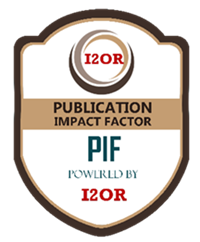THE DERIVED EXPLICIT FOURTH-STAGE SECOND-ORDER RUNGE-KUTTA METHOD IS CONSISTENT AND CONVERGENT
DOI:
https://doi.org/10.53555/nnms.v10i2.1519Keywords:
Consistency, Convergence, Explicit, Runge-Kutta Methods, Linear and non- linear equations, Taylor series, Parameters, Initial-value ProblemsAbstract
The purpose of this paper is to analyze the consistency and convergence of an explicit fourth-stage second-order Runge-Kutta method derived using Taylor series expansion by varying parameters. The analysis revealed that the method is consistent and convergent. These properties are key and vital for any numerical method to possess for it to be capable of handling initial value problems. The implementation of this method on initial-value problems has been done in previous paper, and it revealed that the method compared favorably well with the other existing explicit Runge Kutta method of the same order. Hence, as a result of the convergence and consistency of the method, it will definitely be reliable and dependable.
References
Agbeboh; G.U (2013) “On the Stability Analysis of a Geometric 4th order Runge–Kutta Formula”.(Mathematical Theory and Modeling ISSN 2224 – 5804 (Paper) ISSN 2225 – 0522 (Online) Vol. 3, (4)) www.iiste.org.the international institute for science, technology and education, (IISTE).
Agbeboh, G.U and Ehiemua, M (2014): Modified Kutta’s Algorithm, JNAMP, Vol. 28(1), 103 – 114.
Agbeboh, G.U and Esekhaigbe, A.C (2015); “On The Component Analysis And Transformation Of An Explicit Fourth-Stage Fourth-Order Runge-Kutta Methods”, Journal Of Natural Sciences Research ( WWW.IISTE.ORG), ISSN 2224-3186 (paper), ISSN 2225-0921 (online), Vol. 5, No. 20, 2015.
Agbeboh, G.U., (2006); “Comparison of some one – step integrators for solving singular initial value problems”, Ph. D thesis, A.A.U., Ekpoma.
Agbeboh, G.U and Aashikpelokhai, U.S.U (2007): An Analysis of order Thirteen Rational Integrator, Journal of Sc. Engr. Tech, Vol. 9(2), 4128 – 4145.
Agbeboh, G.U., Ukpebor, L.A. and Esekhaigbe, A.C., (2009); “A modified sixth stage fourth – order Runge-kutta method for solving initial – value problems in ordinary differential equations”, journal of mathematical sciences, Vol2.
Barletti, L, Brugnano, L, and Yifa, T., (2020): “Spectrally accurate space time solution of manakov systems”, Mathematics, J. Comput. Appl. Math 2020.
Brugnano, L, Gurion, G, and Yadian, S., (2019): “Energy conserving Hamiltian Boundary value methods for numerical solution of korteweg de vries equations”, Mathematics, J Compt. Apll. Math. 2019.
Gianluca, F, Lavermero, F, and Vespri, V., (2021): “A new frame work for approximating differential equations”, Mathematics, Computer Science, 2021.
Thomas, H. C, Charles, E. L, Ronald, L. R and Clifford, S (2001), “Representing Rooted Trees,” MIT Press and Mc Graw-Hill, ISBN 0-262-03293-7, PP 214-217.
Turker A. (1980)., “Applied Combinatorics” Wiley, New York.
Van der Houwen, P. J., Sommeijer, B. P., (2015); “Runge-Kutta projection methods with low dispersion and dissipation errors”, Advances in computational methods, 41: 231-251.
William W. (2002), “General linear methods with inherent Runge-Kutta stability”, A thesis submitted for the degree of doctor of philosophy of the University of Auckland.
Yakubu, D.G, (2010); “Uniform Accurate Order Five Radau –Runge-Kutta Collocation Methods” J. Math. Assoc. Niger. 37(2):75-94.
.
Published
Issue
Section
License
Copyright (c) 2023 Journal of Advance Research in Mathematics And Statistics

This work is licensed under a Creative Commons Attribution-NonCommercial-NoDerivatives 4.0 International License.
You are free to:
- Share — copy and redistribute the material in any medium or format for any purpose, even commercially.
- Adapt — remix, transform, and build upon the material for any purpose, even commercially.
- The licensor cannot revoke these freedoms as long as you follow the license terms.
Under the following terms:
- Attribution — You must give appropriate credit , provide a link to the license, and indicate if changes were made . You may do so in any reasonable manner, but not in any way that suggests the licensor endorses you or your use.
- No additional restrictions — You may not apply legal terms or technological measures that legally restrict others from doing anything the license permits.
Notices:
You do not have to comply with the license for elements of the material in the public domain or where your use is permitted by an applicable exception or limitation .
No warranties are given. The license may not give you all of the permissions necessary for your intended use. For example, other rights such as publicity, privacy, or moral rights may limit how you use the material.




